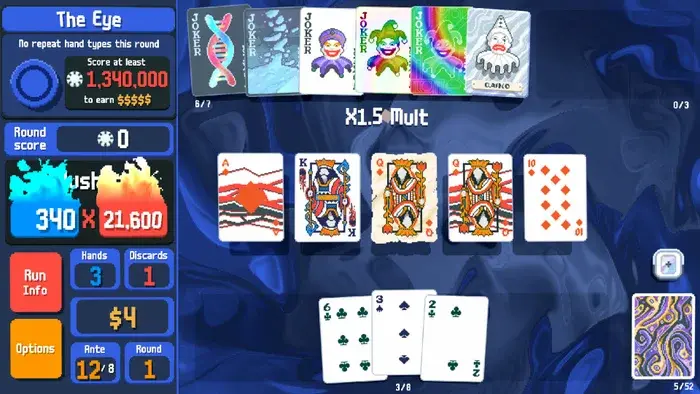PEGI Revises Age Ratings for Gambling-Themed Games: A Shift Towards Nuanced Classification

PEGI has reclassified two indie games—Balatro and Luck Be A Landlord—lowering their age rating from PEGI 18 to PEGI 12. The change comes after formal appeals from both developers, who argued that their games, while using gambling-inspired mechanics, do not promote real gambling behavior.
Initially flagged for content resembling poker and slot machines, the games were caught by PEGI’s strict rules around simulated gambling. But the appeals prompted a deeper review—and a more flexible interpretation of how these mechanics function in gameplay.
No Real Wagering, No Real Risk
One of the main reasons behind the successful appeal was the absence of any real-money gambling or transferable gambling skills. Balatro, for example, uses poker hands in a fantasy deck-building context. Luck Be A Landlord draws from the aesthetics of slot machines, but has no cash-out system or financial component.
PEGI’s review board concluded that while these games feature visual and mechanical elements similar to gambling, they do not glamorize or normalize real-world gambling behavior. As such, assigning them the highest age restriction was deemed disproportionate.
Rating Games Based on Context, Not Just Visuals
This reclassification suggests that PEGI is taking a more context-aware approach. In the past, any appearance of gambling—whether stylized or realistic—often triggered a PEGI 18 rating. That’s no longer a given.
Now, PEGI appears to be distinguishing between games that simulate gambling for entertainment and those that carry risks of imitation or behavioral reinforcement. Developers creating stylized, abstract, or fictional mechanics that borrow from gambling may no longer face automatic age barriers, as long as the content isn’t misleading or promoting risk-based decision-making.
A Win for Indie Developers and Game Visibility
This shift is especially important for small studios. An 18+ rating can limit marketing options, reduce storefront visibility, and alienate a broader audience. For indie titles like Balatro and Luck Be A Landlord, being reclassified to PEGI 12 can dramatically improve reach—especially on platforms that apply age gates.
It also sends a message that appealing a rating, when backed by a clear case and context, is worthwhile. PEGI’s willingness to revise these decisions sets a precedent that encourages fairer assessments going forward.
What This Means for Parents and Players
For consumers, the new ratings help clarify what kind of content is actually being presented. Parents using age labels to filter game libraries can now make better-informed decisions. A game that looks like a casino simulator might not be one—and that nuance matters.
PEGI emphasized that it remains committed to protecting younger audiences. Games that promote real gambling, teach techniques, or create strong associations with betting behavior will still receive strict classifications. But developers who use the themes playfully or abstractly now have more room to work within lower age bands—provided the context supports it.
PEGI Signals a Shift Toward Smarter Classification
PEGI has hinted that further policy reviews are on the horizon. One likely outcome is a more refined set of labels or descriptors for gambling-adjacent content, enabling consumers and regulators to draw clearer lines between stylization and simulation.
This update reflects ongoing conversations in the gaming industry about how to rate games in a way that protects players without unnecessarily restricting content. With more games blurring genre lines, PEGI and other ratings boards are under increasing pressure to evaluate based not just on appearance, but purpose and design.